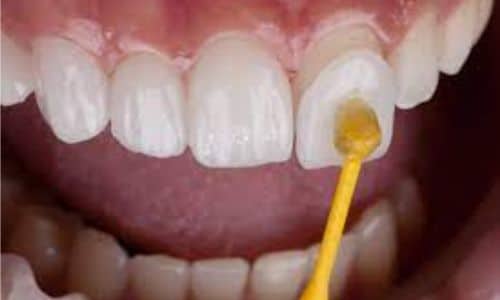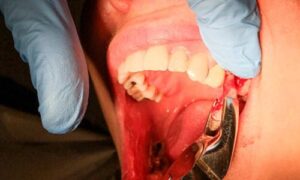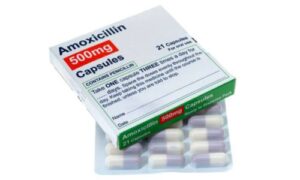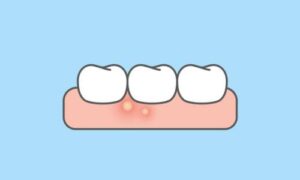Are you unhappy with your smile? Do you have chipped, stained, or misshapen teeth? If so, veneers may be the solution for you. Veneers are thin, custom-made shells placed on the teeth’ front surface to improve their appearance. In this article, we will discuss the benefits of veneers and what they can do for your smile.
What Are Veneers?
Veneers are thin shells made of either porcelain or composite resin that are custom-made to fit your teeth. They are designed to cover the front surface of your teeth to improve their appearance. Veneers can be used to correct a variety of dental issues, including:
- Stained or discolored teeth
- Chipped or cracked teeth
- Misshapen or uneven teeth
- Gaps between teeth
- Teeth that are too small or too large
How Are Veneers Applied?
Before veneers are applied, your dentist will prepare your teeth by removing a small amount of enamel from the front surface of each tooth. This ensures that the masks will fit properly and look natural. Once the teeth are prepared, your dentist will take impressions of your teeth to create custom-made shells that fit perfectly. The veneers will then be bonded to your teeth using a unique adhesive.
The Benefits of Veneers
Veneers offer many benefits, including:
1. Improved Appearance
Veneers can dramatically improve the appearance of your teeth. They can whiten stained or discolored teeth, repair chipped or cracked teeth, and even misshapen or uneven teeth. Veneers can also correct gaps between teeth and teeth that are too small or too large.
2. Durability
Veneers are durable and can last for many years with proper care. Porcelain veneers are solid and can resist chipping and staining. Composite resin veneers are also durable but may need to be replaced more frequently than porcelain veneers.
3. Minimally Invasive
Veneers are a minimally invasive way to improve the appearance of your teeth. Unlike other cosmetic dental procedures, such as crowns or dental implants, veneers do not require the removal of healthy tooth structures.
4. Easy Maintenance
Veneers are easy to maintain with good oral hygiene habits. You should brush and floss your teeth regularly and visit your dentist for regular checkups and cleanings. Avoid biting on complex objects, such as ice or hard candy, to prevent chipping or cracking your veneers.
5. Natural Appearance
Veneers are designed to look natural and blend in with your surrounding teeth. They are custom-made to match the color and shape of your teeth and are virtually indistinguishable from natural teeth.
Are Veneers Right for You?
Veneers may be right for you if you have cosmetic dental issues that you would like to address. However, veneers may not be suitable for everyone. Your dentist can help determine if veneers are the right choice based on your needs and preferences.
The Cost of Veneers
The cost of veneers varies depending on the type of veneers you choose and the number of teeth needing treatment. Porcelain veneers are typically more expensive than composite resin veneers but are more durable and long-lasting.
How to Care for Your Veneers
To care for your veneers, you should follow good oral hygiene habits, including brushing and flossing your teeth regularly. You should also avoid biting on complex objects, such as ice or hard candy, to prevent chipping or cracking your veneers. Additionally, it is essential to visit your dentist regularly for checkups and professional cleanings to ensure the longevity of your veneers.
Potential Risks and Considerations
While veneers offer numerous benefits, it’s essential to consider some potential risks and limitations associated with the procedure. These include:
1. Irreversible Procedure
Applying veneers involves removing a small amount of enamel from your teeth. This means that the procedure is irreversible, and once you have shells, you will always need them to maintain the appearance of your teeth.
2. Sensitivity
Some individuals may experience temporary tooth sensitivity after getting veneers. This sensitivity usually subsides within a few days or weeks. If the sensitivity persists or becomes severe, it is essential to consult your dentist.
3. Maintenance and Replacement
While veneers are durable, they may require maintenance or replacement over time. Depending on the material used and how well you care for them, veneers can last between 10 to 15 years. Porcelain veneers are known for their durability, while composite resin veneers may have a shorter lifespan.
4. Staining
While veneers resist staining, the natural teeth surrounding them are still prone to discoloration. Maintaining good oral hygiene and limiting the cons of essential foods and beverages, such as coffee, tea, and red wine, can stain your teeth.
Conclusion
Veneers are an excellent cosmetic dental option for individuals looking to enhance the appearance of their smile. With their ability to address various dental imperfections, veneers can provide a natural and aesthetically pleasing solution. The benefits of veneers include improved appearance, durability, minimally invasive procedure, easy maintenance, and a natural look.
If you are considering veneers, consult your dentist to determine if they are the right choice. The dentist will assess your specific dental needs and, through the process, ensure you achieve the desired smile.














